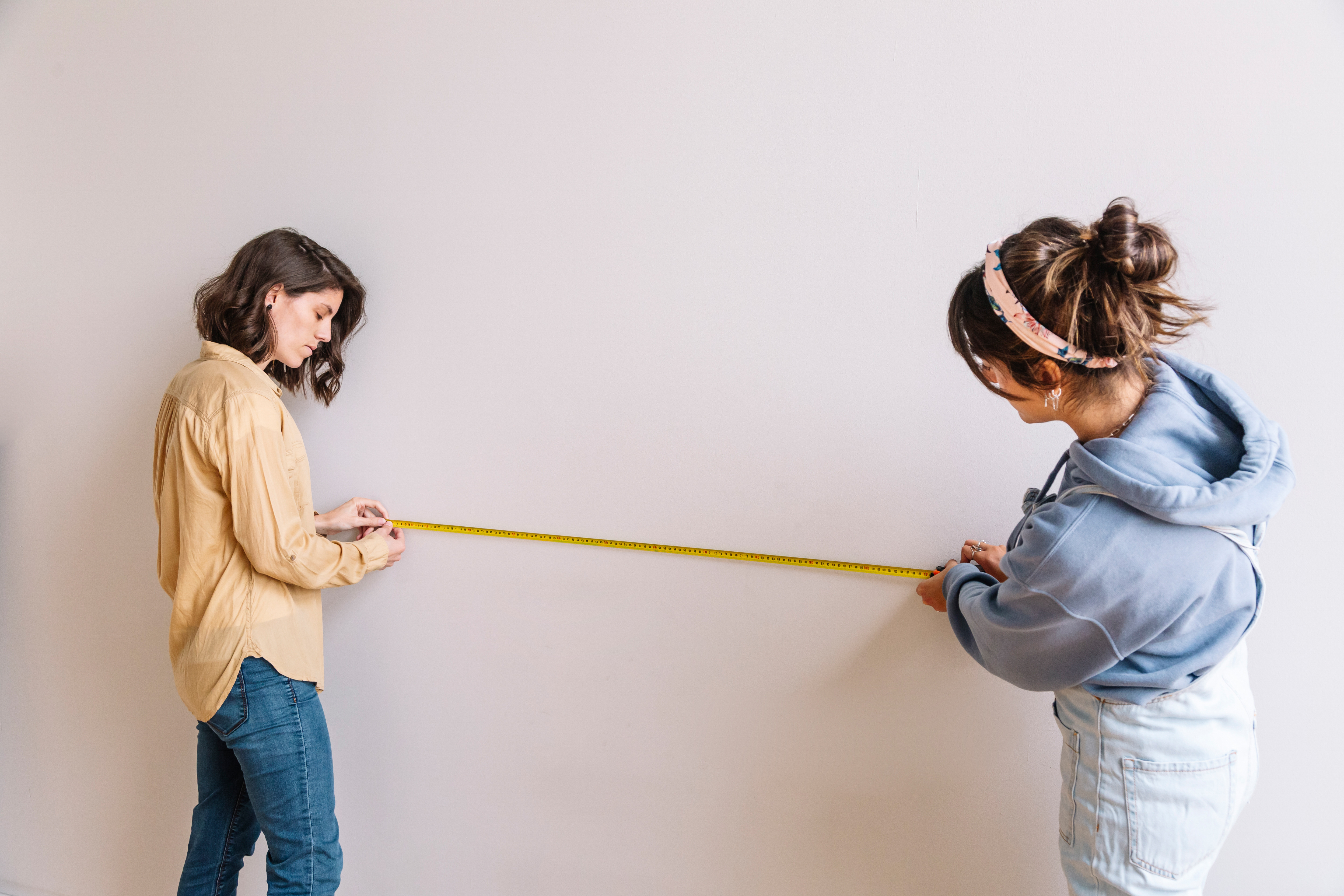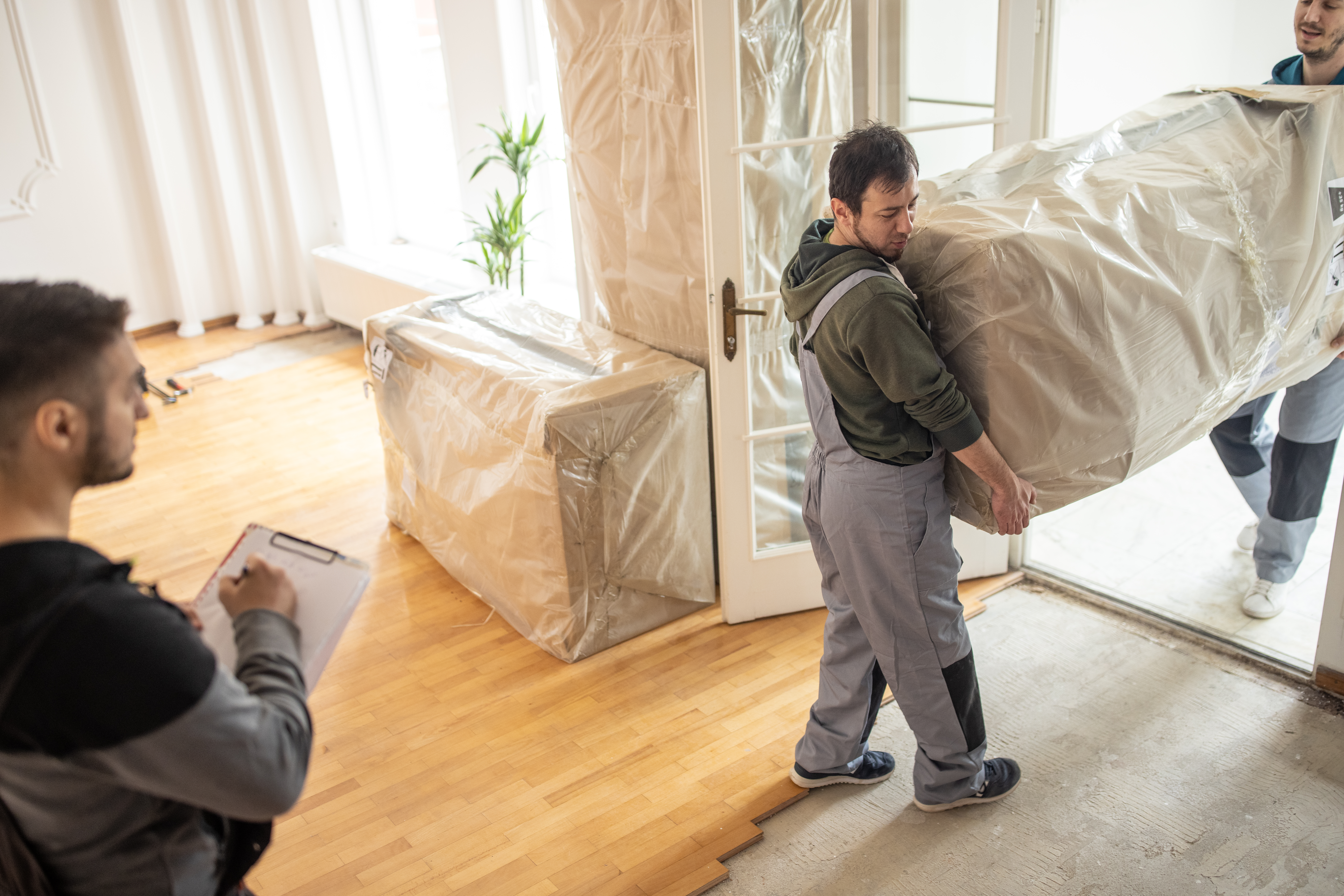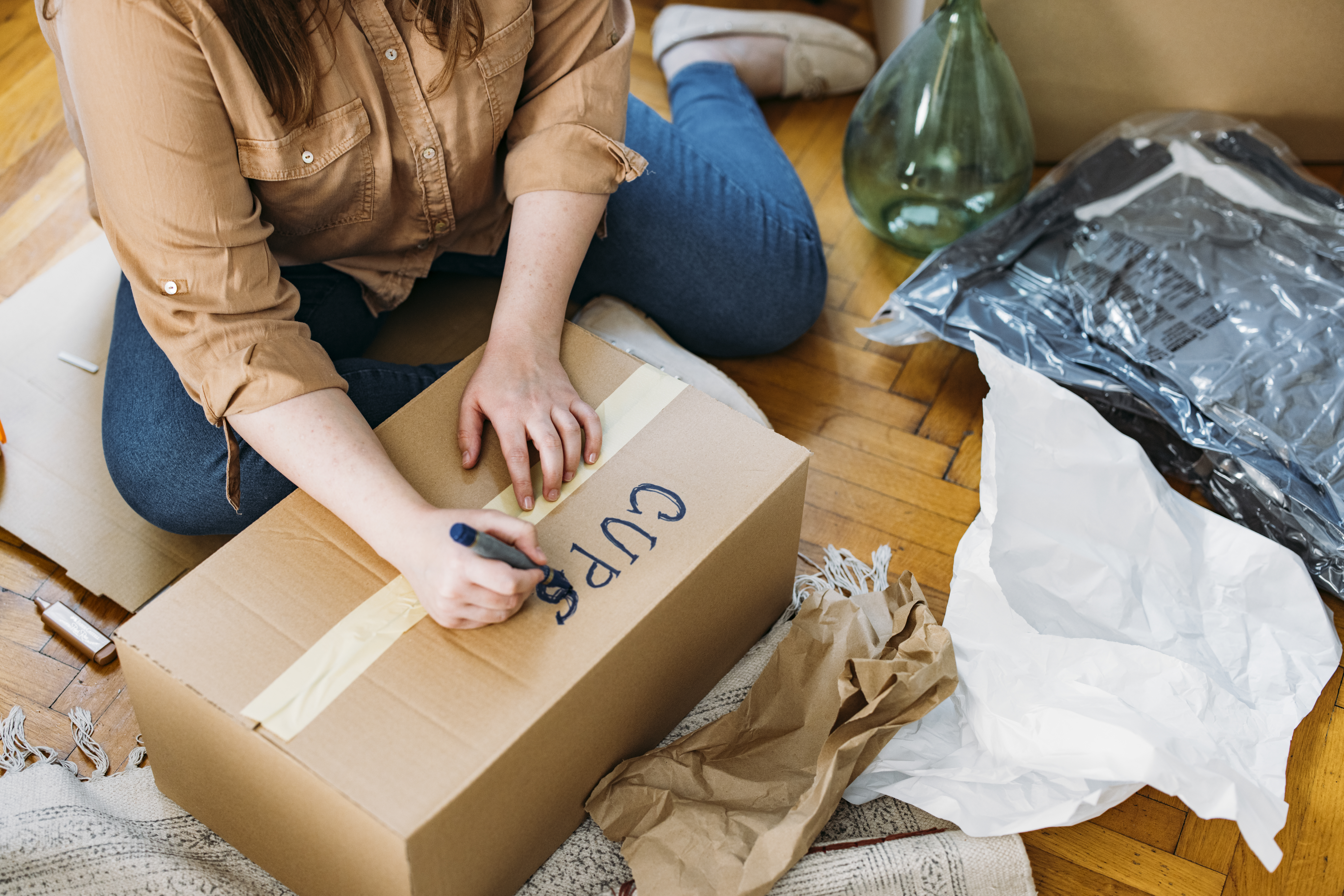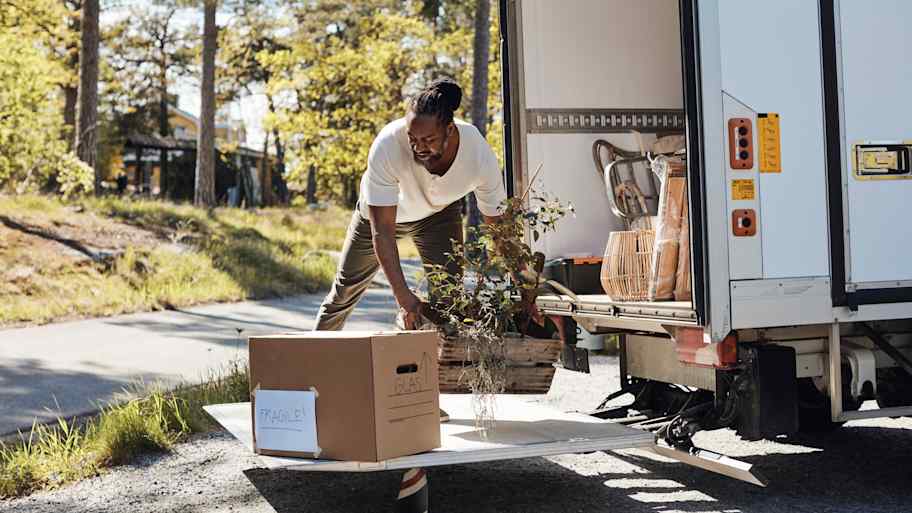
The cost to move a 4-bedroom house depends on home size, distance, and whether you hire movers. Learn the necessary costs before moving long distance.
Transform moving chaos into organized success


Here’s the thing about moving day: It feels more like you’re an air traffic controller at an airport during the holidays than you’re beginning an exciting new chapter. But it doesn’t have to be that way. The right moving day tips can turn this process from a headache into something surprisingly manageable. By starting early, staying organized, and maintaining clear communication, a potentially overwhelming experience can be that much easier. Take a look at these proven strategies to navigate everything from the pre-dawn prep to the final walkthrough.
No matter the type of moving company, always call them to confirm arrival times, crew size, and other last-minute details. The same goes if you’re handling the move with friends and family—moves can be hard to navigate, so it’s good to ensure everyone’s on the same page.
Provide everyone with your new address, when and where to meet, and make sure they know their specific job. You want to avoid any mishaps that could derail your timeline. A five-minute phone call ahead of time can prevent hours of confusion later.

Visit your new home the day before to make sure the utilities are connected and functioning. Test the light switches and outlets, and run the faucets. Most importantly, measure doorways and stairwells to confirm your largest or oddly shaped furniture pieces will actually fit through them.
Also, consider doing a quick grocery run at this point. After a long move, you don’t want to deal with an empty fridge. Plus, you’ll be able to offer some refreshments for the moving crew.
The most successful moves happen when everyone’s running on more than willpower. Wake up at least two hours before the moving truck arrives to shower and get your head in the game.
Most of all, eat something substantial. You wouldn’t drive across the state on an empty tank, and you don’t want to make moving decisions while hangry. Pack energy bars, water bottles, and coffee for yourself and the crew. Moving days often run longer than expected, especially for local moves with multiple trips, so you have to keep your energy up.
Not everything needs to be loaded into the moving truck. Create a clearly labeled box with essentials: toilet paper, soap, towels, and phone chargers. Add snacks, water, medications, and a few toys for the kids, and keep the kit in the car so you can quickly find it.
A smart move is a safe move, which is why many people keep their most valuable items close. Pack a special box for birth certificates, passports, insurance papers, and medical records. Keep this box along with jewelry, certain electronics, and items with sentimental value in your personal vehicle rather than the moving truck.
It’s also a good idea to take photos of valuable electronics and note their serial numbers before packing. This way, you’ll have all the information you need should you need to make a claim with the moving company. These simple precautions protect expensive items and give you one less thing to worry about.

Before movers show up, walk through both your current home and new place like you’re planning evacuation routes. Clear obstacles and move furniture away from the walls. Be sure to also secure pets where they won’t be underfoot.
Then, lay down protective coverings on floors, especially around high-traffic areas. This is just as much about preventing damage as it is about keeping traffic flowing efficiently. When movers can work without dodging obstacles or worrying about scratching floors, the whole process will be smoother.

Most people label moving boxes with generic descriptions like “kitchen stuff” or “bedroom things.” That’s like writing “food” on every item in the fridge. Sure, it’s true, but unhelpful when you need something specific.
Skip the vague stuff and instead write “Kitchen: pots, mugs, and dish rags.” This will pay off later, especially on that first morning in the new place when finding the coffee maker is the most important thing in the world.
It’s tempting to get bogged down in the minutiae, especially when there are so many tasks, but you need to be available for big decisions or unexpected situations.
Keep your phone handy and stay accessible to answer questions or provide directions. Whether you’re using professional movers near you or friends and family, be sure to point out fragile items and provide special instructions.
From average costs to expert advice, get all the answers you need to get your job done.

The cost to move a 4-bedroom house depends on home size, distance, and whether you hire movers. Learn the necessary costs before moving long distance.

The cost range for renting a moving truck varies widely, so what can you expect to pay for your move? This cost guide breaks down all of the factors.

Shipping a motorcycle is easier said than done. Here are the different motorcycle shipping options available and how much they cost.

If the refrigerator in your new home doesn’t fit, or you have a strong attachment to your current one, you’ll need a strategy for shipping it safely. Here’s how to properly ship a refrigerator and tips for avoiding hits and dings along the way.

Packing up and hauling your belongings to a new home is no easy feat, but these tips for long-distance moves will keep you on track.

These seven tips will help you to steer clear of moving scams and find a reputable pro to handle your move. Check out our guide to learn more.